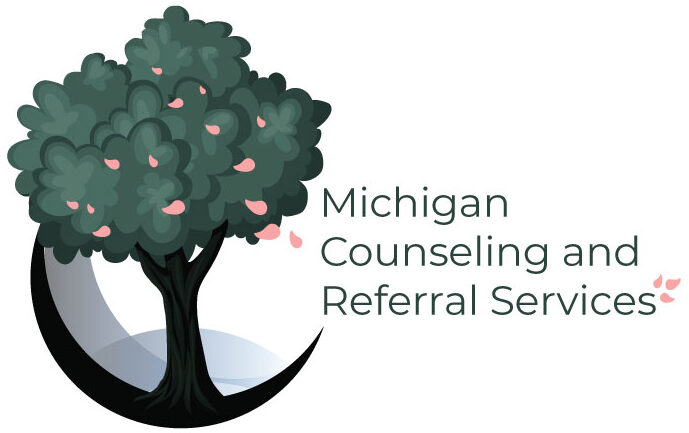Table Of Contents
Can A Neurotypical Therapist Treat Neurodivergence?
The idea of neurotypical vs neurodivergent is a fairly recent development in the mental health field. As a neurodivergent therapist, I find it easier to treat neurodivergent clients. But what about neurotypical therapists? Can a neurotypical therapist treat neurodivergence?
This is a no-brainer: absolutely! Neurotypical therapists can treat neurodivergence in neurodivergent affirming therapy. It is important to note that it is not the neurodivergence that the neurotypical therapist must treat. Usually in treating neurodivergent folx we need to do an all-encompassing assessment to pin-point exactly where the problem may be coming from.
All too often people think that being neurodivergent is the problem with us neurodivergent folx. This is not at all the case. Instead, we look to environmental factors or other potential mental health struggles that neurodivergent folx have for treatment.
As a neurotypical therapist your role is to support your neurodivergent clients and treat whatever the actual illness may be. Believe me, I’m a therapist, too. So I know how difficult this shift may be for you!
There are many reasons why it may be difficult for a neurotypical therapist to treat neurodivergence. Here are a few reasons why it may be challenging for a neurotypical therapist treating neurodivergent folx.

All Therapists Are Trained In A Neurotypical System
One thing you will hear me talk about a lot is humans as a product of our systems. Put quite simply, universities were not designed with neurodiversity in mind since it’s a very new idea in our field.
Medical schools, counseling programs, and graduate programs for providers tend to focus on something called evidence-based practice. This basically means that they only teach interventions and practices that are supported by research evidence.
Evidence from research is found primarily in academia and is considered the gold standard in mental health practice-as well as in other fields.
Evidence Is Good For Neurotypical Therapists, Right?
So using published evidence sounds great, right? After all, we don’t want to practice willy-nilly! Well, it isn’t that simple unfortunately.
Evidence-based practice is awesome and it tells us so much about ourselves and how to treat folx in therapy. The biggest issue we run into is that our current evidence base is NOT all encompassing of our current knowledge as providers.
The idea of what we call “evidence-based” is actually more specifically “published”. This means that we have a body of evidence that does not specifically tell us everything because, of course, we haven’t published everything there is to know!

When we want to research something in academia, there is a long process it takes for us to get an idea approved, funded, written, and published. By that time we often we learn anecdotally where we need to go from that study!
So research is commonly behind practice experience, but we still need the evidence to practice off of. This puts providers in a bit of a sticky situation on how to best manage different conditions. Often times what happens is therapies tend to get over-generalized and taught to be used in inappropriate circumstances.
How Neurotypical Therapy Doesn’t Work For Us
Here’s an example: Cognitive behavioral therapy (CBT) according to the published evidence we have is objectively the best treatment or conjunct that we have for almost every mental health disorder we know of short of more severe variants. Imagine being able to treat most or all medical illnesses with only one medicine. Seems a bit too good to be true, right?
That would mean we are all fundamentally the same and our depression, anxiety, focus levels, mood, and other mental health variables aren’t actually all that different. This is a major tenant of neurotypical thinking that makes it difficult for them to treat us in therapy. But humans are much more complex than that, as you know.
My depression is different than yours which is different from my mother’s. CBT may work for you but not for me using the exact same manualized approach because the cause of the depression may be different. It works great for neurotypical people who do not have many extraneous problems in their lives and struggle with negative thoughts that pop up throughout the day.
So unfortunately, CBT is an example of a therapy that is not very neurodivergent affirming. This is because its basis is identifying that there is an issue with the way you think. The theory is that what you think produces how you feel, so change the way you think.
For us neurodivergent folx, often times trying to exist in a neurotypical world can make us depressed. Changing the way we think about that most likely is not going to stop us from feeling isolated in a society not built for us.
Due to our structural differences in the neurodivergent brain, this is way more difficult for us neurodivergent folx to manage. In many cases leaving therapies like this can make neurodivergent folx more defeated and marginalized. If we can’t succeed in therapy, what can we succeed in? And the cycle continues.

Our Medical Model Isn’t Neurodiversity Affirming
In a similar vein of my previous point, our biomedical model does not include neurodiversity as a component in our treatment. This relates back to the lack of research because of the idea being a newer one to mental health.
In our medical model we need to essentially assess, diagnose, and treat. That is what insurance pays for, so that is what we as practitioners who take insurance must abide by.
So this seems right, doesn’t it? Well, not when our medical model identifies neurodivergences as disorders that need to be diagnosed and treated. Remember, they aren’t disorders. They are simply neurological differences.
This is where misdiagnoses happen. Like I said before, we neurodivergent folx experience and communicate our problems differently. If I have depression and I’m ADHD, my depression may look like a gnarly inability to focus or sit still. Or maybe I blurt out inappropriate things in certain settings.
A neurotypical doc or therapist may look at me and say “he needs Adderall because he’s ADHD” and ignore the fact that I may struggle to express how I’m feeling in a way that the provider understands. Believe me, I’ve seen it time and time again.
If the doc does a longer assessment and checks my social history, mental health history, and medical history he would have known that my school life was filled with bullying for my mediocre ability to manage school since nobody ever taught me. Adderall doesn’t make my environment change, it just helps me check out and burrow through it.
Again, we providers need to be screening for everything prior to giving a diagnosis. Even within the medical model, lacking a neurodivergent lens can make things worse. If I mislabel a kiddo as autistic or oppositional defiance (do not get me started on this one) because of a shotty assessment I may have just jeopardized their future quality of treatment with other providers.

Lack of Understanding of Neurodivergence Causes Prejudice
The bottom line here is that there isn’t a strong research history in Neurodiversity, so therapists haven’t had to learn to be sensitive to it. Because there is not a strong evidence base for neurodivergent affirming therapy, universities do not cover it unless they have an extraordinary professor that focuses on it.
What we have seen in the past with a lacking of understanding of others is prejudice towards the “other”. We begin to build unconscious biases for people who appear “lazy”, strange, or different.
For reference, the modern neurodiversity movement is only about 30 years old. Prior to the idea of neurodivergence, we neurodivergent folx were labeled as all sorts of negative things.
It wasn’t even thought of until psychiatry created all of these diagnoses that clustered our neurodivergent traits as “disorders” since they got in the way of neurotypical functioning (which is what our biomedical definition of a “disorder” is).
Neurotypical Prejudice Causing Systemic Pressure For Neurodivergent Folx
So how does this affect neurotypical therapists treating neurodivergence? Researchers never knew about neurodivergence during the period of time before the 1990s when the term was originally coined. That means that we have a giant pool of data on what may or may not work for people in mental health treatment from that time.
However, we do not see how being neurodivergent affects those results because it was never explored. Look at any recent study of autistic or ADHD folx and their comorbidities and life struggles. You will see very quickly that there is a huge gap of information missing here on what does and does not work for the neurodivergent brain in therapy.
This is one way systemic problems arise. Not taking into account a person’s differences allows our systems to treat those people less than the majority, which creates systemic inequality across the board.
We have seen this with race/ethnicity, socioeconomic status, and social status in the past. Solutions to mental health problems are only now beginning to take neurodiversity and other identifying factors into account.
These are important to assess as professionals because they can give us a great understanding of what we can control and what we cannot in neurodivergent affirming therapy. So unfortunately, we will likely not see neurodiversity covered in universities on a large scale until there are more academic articles on the topic.

Conclusions – Neurotypical Therapists Can Treat Neurodivergence
I wrote this article to show that neurotypical therapists absolutely can treat neurodivergence. We simply need to rethink our approach as practitioners, especially if you are a neurotypical practitioner. Being neurodivergent affirming as a neurotypical therapist is not super difficult.
As we learn new information about ourselves we need to allow our treatments to ebb and flow with the knowledge. This way we can envelope as much as possible for the clients we care for. All we need to do is include these questions in our assessments.
If accuracy is key, we need to strive to learn the most we can about our clients. Read up on different topics within neurodiversity to better understand yourself or your clients. You may be surprised what you find!
Contact Me Directly!
All inquiries are responded to within 1-3 business days from inquiry. Feel free to use my contact information tomorrow to leave a message!
Hours: Monday-Thursday 12-7pm
Phone: (269) 350-3470
Email: antonio@michigancrs.com
Location: 1451 East Lansing Dr., Suite 219
East Lansing, MI 48823
References
https://digitalcommons.lesley.edu/cgi/viewcontent.cgi?article=1206&context=expressive_theses

A blogging friend of mine who’s autistic has been referred for autism-adapted CBT, although he hasn’t started it yet, so I’m not sure exactly what the adaptations are.
Hmmm, that’s interesting. I honestly had to look that up and didn’t find anything particular on it short of individual providers adapting their CBT practice to be more neurodivergent affirming. It’s for sure possible I think, it just depends on what we are coining as the problem that needs to be addressed. If they are everyday struggles that he may need help with there are definitely ways to be affirming to his condition while addressing those specified problems. Essentially, if the provider effectively meets him where he’s at he should be good! I’d be interested to know the adaptations for sure, though.